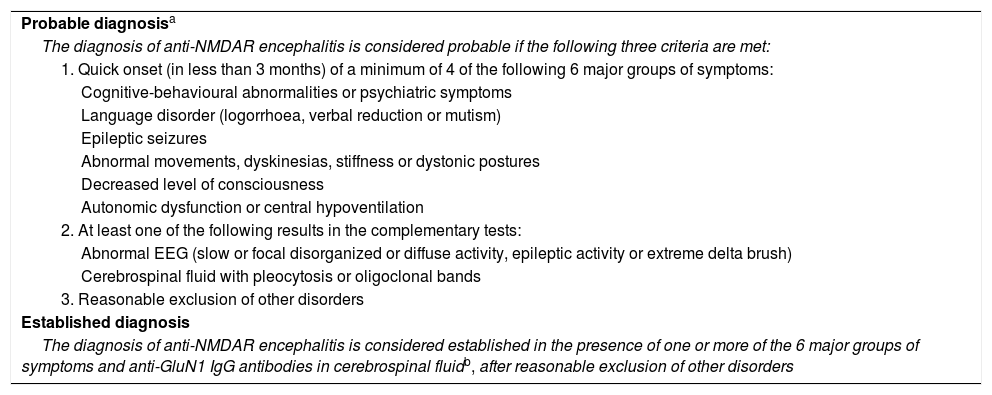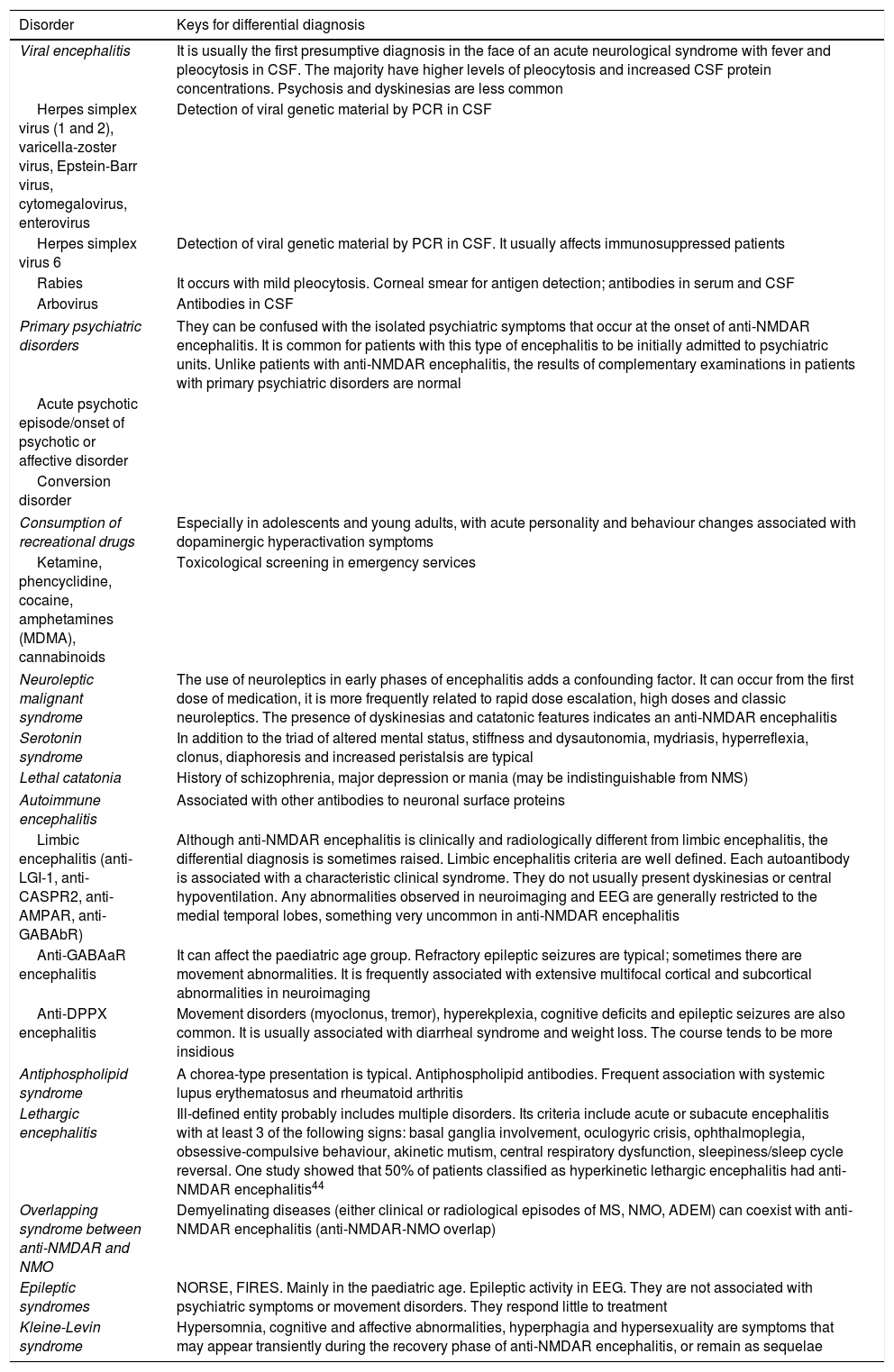The encephalitis associated with antibodies against the N-methyl-d-aspartate receptor (NMDAR) is characterized by the presence of antibodies against the GluN1 subunit of this receptor, resulting in symptoms that are similar to those observed in models of genetic or pharmacologic reduction of NMDARs. Patients are usually young adults, predominantly women, and children who develop, in a sequential manner, rapidly progressive symptoms including psychosis, abnormal movements, autonomic dysfunction, and coma. Epileptic seizures are variable and can occur throughout the course of the disease. The disease is often mistaken as viral encephalitis, primary psychiatric disorders, drug abuse, or neuroleptic malignant syndrome. About 50% of young women have an ovarian teratoma; in young girls and men the presence of a tumour is infrequent. In some patients, the disease is triggered by herpes simplex encephalitis. The recognition of anti-NMDAR encephalitis is important because, despite its severity, most patients respond to immunotherapy.
La encefalitis asociada a anticuerpos contra el receptor N-metil-D-aspartato (NMDAR) se caracteriza por la presencia de anticuerpos contra la subunidad GluN1 del NMDAR, resultando en síntomas parecidos a los observados en modelos de alteración genética o antagonistas farmacológicos del receptor. Los pacientes suelen ser adultos jóvenes, predominantemente mujeres, y niños/as que presentan de manera rápida y secuencial: psicosis, movimientos anormales, disfunción autonómica y coma. Las crisis epilépticas son variables y pueden ocurrir en cualquier momento de la evolución. La enfermedad suele confundirse con encefalitis virales, procesos psiquiátricos primarios, ingesta de drogas y síndrome neuroléptico maligno. El 50% de las mujeres jóvenes tienen un teratoma de ovario; en niñas y varones, la presencia de un tumor es infrecuente. En algunos pacientes la enfermedad es iniciada por una encefalitis herpética. El reconocimiento de la encefalitis anti-NMDAR es importante porque, a pesar de su gravedad, la mayoría de los pacientes responden a la inmunoterapia.
Artículo
Comprando el artículo el PDF del mismo podrá ser descargado
Precio 19,34 €
Comprar ahora











